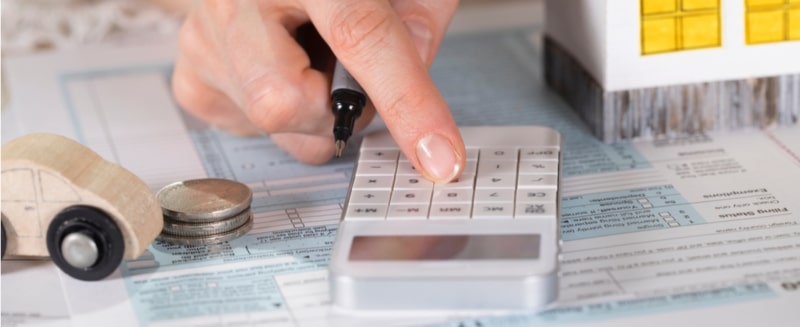There is a lot of bookkeeping that has to happen when you first start a business. This is important not only so you can run your business successfully but also so that when tax season rolls around—or worse, you get audited—you have pristine paperwork to present to the IRS.
As tax professionals, we help a lot of customers who run their own small businesses. Typically, these people start building their business slowly. They get some people interested and suddenly they’re off running without thinking about what kind of infrastructure they need in place. It’s not until a year or two later that they realize they have to file a tax return. At that point, there’s a lot of messy paperwork to get through.
Make life easier for yourself and establish a separate checking account immediately after starting your new business. The first dollar you make is more than just something to hang on the wall. It’s actually a sign that you are ready for a separate business checking account. In fact, this should be one of the very first bookkeeping tasks on your list. There are a few reasons why.
1. A separate checking account will help you see the money coming in and leaving your business in one place. This way you don’t have to worry about mixing the money in with your personal expenses, like buying groceries or paying your cable bill. It is much easier to identify business activities when they are all in the same account.
2. The IRS requires that you keep accurate books and records on your business. You will want to keep all account statements from the bank, neatly filed and organized, so they are available for IRS inspection at any time.
3. If you get audited with just one account for both personal and business, the IRS will deem the personal and business activities to be comingled. You may have to recreate all transactions—going back to that first dollar—and that’s a headache you don’t need.
4. If all business expenditures are purchased through a business account, it makes a stronger argument to the IRS that when you went to Walmart or Target, you were purchasing only business supplies, rather than some business supplies and some personal items.
Here are a few more tips to make the best use of your business checking account:
- If you make more than $400 each year from your business, you must file a tax return on that income.
- Don’t use your business account to pay for personal items, ever. It will come back to haunt you if you are audited.
- Document all cash withdrawals and deposits, including a small description of the transaction. If the IRS audits you, it will compare the checking account deposits to the income reported on the return.
- Keep all business records for a minimum of seven years—but check your specific state law for specifics. In Georgia, for example, there is no statute for how long you must keep business records, so you should consider keeping them forever.
Bill Nemeth and Merry Brodie are both Enrolled Agents and the founding partners and owners of Tax Audit Guardian, an Atlanta-based group of professionals who specialize in assisting troubled taxpayers. The married couple also recently sold their 24 Jackson Hewitt Tax Service franchises. Additionally, Brodie works with small businesses as owner of Brodie Accounting Services and Nemeth is active in education and membership arms of the Georgia Association of Enrolled Agents.
[amazon_link asins=’B00XC5KNB6,B077HB2L34,B071WL7WBQ’ template=’ProductCarousel’ store=’thinkglink-20′ marketplace=’US’ link_id=’706923e4-44b8-11e8-83ca-61d5158c0e1b’]






